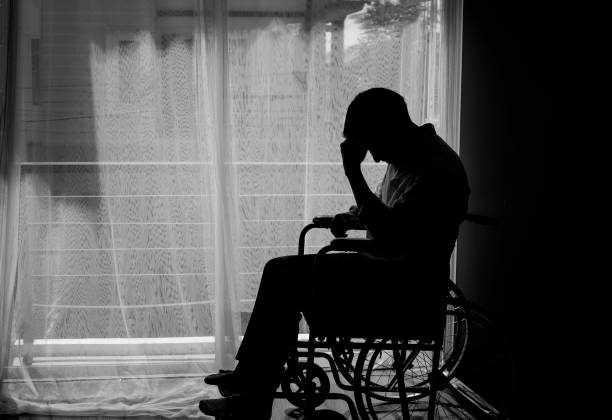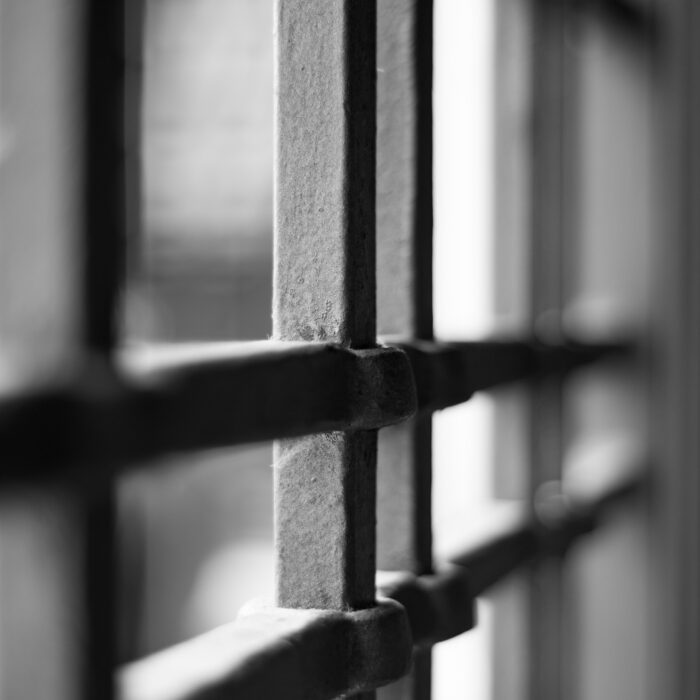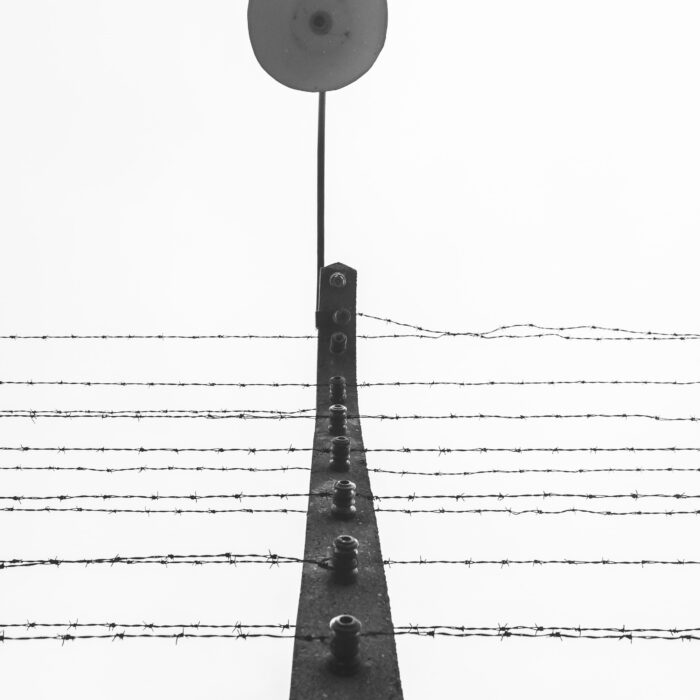You have no items in your cart. Want to get some nice things?
Go shopping
When the ship is halfway across the Atlantic, he changes his name. Lying in his bunk, he pulls out a scrap of paper and writes it out again and again until the pencil wears out. It’s a small change, he thinks, swapping out an o for a y and squeezing in an h. He says it out loud, holding his tongue between his teeth and emphasising. An…fonee. Fff. Fffon. Eee. No longer the tap against the roof of his mouth like the floorboards of a tablao.
He leaves his surname intact. The man in the bottom bunk lives in New York City. He’s done this trip before. You can change it when you get there, the man says. Your English is pretty good, and it sounds kinda Italian. What you don’t want is for them to think you’re some kinda Dago. They don’t know where Gibraltar is anyway. Listen Anthony, the man smiles at him, you can do whatever you want once you get there.
They get to know each other in the days onboard on their way to New York. Hey James, Anthony asks, what was your name before then? James laughs. Who cares? he answers, nobody cares. It’s James now, call me James. Anthony watches James in the low light taking off his shirt and hanging it up on a peg. His muscles folding between his shoulders. The blonde curls of his hair visible in a muted shade. He closes his eyes when James turns around and he pretends to be asleep.
The night before they arrive, Anthony asks James what New York is like. You ever been to London?, James asks. Anthony says no, I’ve never left Gibraltar. Only to Spain you know, because you walk a bit and you’re there. James says, I saw Spain from the port in Gibraltar when we left. It’s nothing like that, nothing at all. Buildings taller than that Rock of yours. How much taller?, Anthony asks. James whistles.
They sneak up to the top deck and it’s dark and empty, with nobody to stop them. Only the water ahead illuminated by the lights of the ship. Anthony leans over the railing and he makes out the letters in white on the side of the ship, reading them upside down. RMS CARPATHIA. The outlines of waves spread out as the ship slices through them in the night. Beyond that, an emptiness stretches out to the horizon so intimidating that Anthony takes a step back. When he looked out to see in Gibraltar there was always land. Algeciras across the water so close you could swim to it, and on a day without levante you could see the mountains of Morocco. All behind him now, moving faster away.
A hand reaches out under his jacket, tracing over his ribs in a way that makes him hold his breath. James pulls out a tin from Anthony’s pocket and taps out two cigarettes. When Anthony turns around, James places one softly between Anthony’s lips and lights it. He feels the moisture of James’ saliva imprinted on the paper, mixing with his own. Where are you from, James? Anthony asks. James says, what does it matter? Leave all that ‘from’ behind now, none of it matters. This is the future you’re going to my friend, everything else is the past. Anthony inhales deep and looks West, away from James. He thinks that in the distance he can see the smallest orange glow. Didn’t the statue in the harbour of New York have a torch? A giant woman of bronze holding it up, inviting him in.
In the morning, James shakes him awake and tells him to grab his bag. They walk out of the dormitory, where everywhere is crammed full of people with their belongings, wanting to be the first ones off the ship. James grabs Anthony’s hand, and they push their way through, ducking under elbows and boxes, squeezing between bodies ripe with the sea voyage. James points out through a grubby porthole and tells Anthony to look through. He sees her then, arm extended pointing to heaven, a crown like La Virgen. Taller than he could have imagined. You made it my amigo, James says. Crushed by people moving closer in the hum of anticipation, James’ hand tightens on Anthony’s, their bodies pushed together with the sway. James’ cheek against Anthony’s. He turns his face and brushes his lips against Anthony, a deliberate imprint. Anthony jerks his head back and scowls. The ship halts sharply and in the lurch, in the circus of people pushing and shouting, each in their language impatient for this new ground to set their feet on, James lets go of Anthony’s hand and disappears.
At the inspection station, Anthony looks up at the flag waving above him while they check his papers. The inspector talks loudly, one question after another in single words like bullets. Name. Age. Occupation. Race or people. Stamps pounded hard onto paper and he’s told to sign his name. Then he’s out somewhere, inching slower and slower in a single mass towards the ferries.
He tries to look at the city, but the crowd swallows him whole as he clutches his papers. Before he tucks them into his jacket, he looks down at what the inspector wrote. The date in delicate cursive, 24th July, 1906. His family name spelled wrong, an extra Z. Under nationality, Gibraltar. Race, Italian. The assumptions James told him about already becoming official.
Maybe at the harbour he’ll see James again, but everything is a blur of bodies and sound in this new place. Women with parasols everywhere, obscuring the view. Hats that look like cakes. Horses pulling carts. Horns blowing. The heat. The smell. The buildings taller, taller than the Rock of Gibraltar so tall he can barely stretch his neck upwards to see without getting dizzy. Piled on top of each other, this moving, squelching, blaring mess of people and machines and concrete going everywhere so desperately. He sees his tía and tío, looking just like the photos they sent. His protests are feeble. My friend, he says, I lost my friend he was on the ship somewhere. You’ll see him again then, his tío says. Everyone rushing everywhere with a sense of purpose and a movement that feels at double speed. He lets them take him away, navigating this city where suddenly the world feels larger and smaller at the same time and he is completely drunk on the it. The ferry. The train. The tram. Pulled along like his spirit is still somewhere across the Atlantic.
And suddenly peace. Suddenly space. A row of neat houses in Brooklyn stretching out forever all looking the same. Cousins, cousins and more cousins he has never met greeting him warmly in strange accents, fast and clipped and pitched so high against his lazy open drawl of basic English. He shares a bed with a newly met relative. Back against back the curves of each other, the warmth of each other in a small comfort against the idea dawning on him in half-sleep that he is thousands of miles away from everything he has known.
Eight weeks in, and the streets seem more familiar. He learns the way to work and home, and gradually his discoveries expand. On his lunch hour at the foundry he can walk to the river and look out at the skyline of Manhattan. It looks like a city of impermanence. He grew up under the Rock of Gibraltar, that looks the same in every old painting he’s seen, and he knows will look the same if he ever crosses that ocean again. He thinks of James on the boat and the past like the wake on the sea. He writes letters home to his padres, balancing his wellness with his longing to embrace them.
On his free days he takes what feels like an interminable journey into Manhattan. In Gibraltar you can walk and reach everywhere. A town with two streets that could fit on an olive stone. Here it feels like trains and ferries and trams and carts and still he doesn’t run out of city. When he’s not on them he’s avoiding them, standing at the centre of everything looking up at the buildings with their strange angles. He looks away from the men building skyscrapers, balancing from steel beams from such a great height he thinks if they fell, they would disappear into dust before their bodies hit the ground.
He buys a newspaper from a man with one leg, hopping around shouting about murders and fires and robberies and wars. He walks the grid of each street and avenue, always delighted in the feeling of being unknown and almost lost. Stumbling into neighbourhoods, each with their own language shouted across the street. It reminds him of the port in Gibraltar, the people arriving and leaving with their own tongues, calling out snatches of Spanish and English and Italian and Arabic and ones he doesn’t know. Here too, each street with food piled high in stalls like the markets in Gibraltar. Meat sizzling on grills and the plump yellow flesh of fruit split open and sold by the pound, not the kilo. But nobody here stops to ask him how his father is. No neighbour feels compelled to report what they’ve seen. No scandal to die down, no prying eyes, no loose tongues.
He turns and walks and turns again, crossing the gates of the park. Past the men in a line under sun umbrellas getting their shoes shined. Past the women pushing strollers and children with sticky pink fingers reaching into boxes of candy floss. Past the elephants and the boys playing baseball, and the lovers on the bridge chastely holding on, finger to finger. If he walks far enough into this piece of solace in the middle of this city that doesn’t seem to stop, he knows he can find stillness. He sits in a spot by the lake under the shade of a tree and watches the boats rowing across the water. He spots two young men without straw hats on, throwing caution to the heat of midday. One of them holding the oars with large, powerful hands. Sleeves rolled up to his biceps, flexing and relaxing as the wooden craft glides along. The other boy smaller, paler, thinner holding onto a book and reading out loud, lips moving inaudibly in the distance.
It’s too much sometimes in this city, despite the wonder. Too many large signs screaming out to buy and buy and buy potato chips and shaving cream and bonds. Everything making noise. Except here, under trees taller than any he’s seen in Alameda Gardens. The summer heat the same as in Gibraltar. He can feel the warmth from the sun and pretend for a moment he is back there. Sitting somewhere in the South District, high up enough to see across the Straits. The deep green of the Mediterranean. No sound but a passing seagull and the muted echo of a ship’s horn.
And his eyes close to see himself back there months ago, with the sailor he met by Europa Bay. The same age as him, nineteen, and already around the world twice over. The heat that day was singular and unexpected. He knew a place, he told the fleeting visitor. They climbed down rocks and left their clothes in the cove. The water looked too good. The sailor closer to him in the sea. Closer still, and a mouth on his cheek, then his lips. Hands underneath reaching for each other. Up the slick, wet, strong arch of his back and on his shoulders. Then a shout in the distance and a figure looking down on them from the rocks. A promise, a desperate call out that they were just playing around but none of it any use. The gossip made its way down Main Street in a matter of days. The sailor long gone for another port. America then, his papá said. Wrapped up in the promise of a new start. When they put him on the ship it felt like they were throwing him away to save themselves the shame.
He opens his eyes and thinks of himself, here. Central Park. New York City. Where things are bigger and taller and grander and impossible but real. Right in the middle of life and the future. With whatever is to come. The two boys still rowing on the boat. People passing in flashes and disappearing forever. He’s seen so many faces.
A boy passes in a white linen suit, a glimpse of the angle of his nose and then from behind, soft blonde curls trailing out of his hat down the nape of his neck. A view he kept and memorised from nights onboard while he pretended to sleep. James! he calls out, James! The boy never turns. Anthony stands up the boy is gone, into the background of the park. And now he’s not so certain it was James. But he stands there, feeling the lips against his cheek that he should have turned to welcome.
A family pass by. A boy about his age trailing behind them. He looks at Anthony and smiles, who smiles back. He sits on the bench again and watches the boy walk away. The boy turns and smiles again before turning out of view. This changing, growing city so full of promise. Someday a chance to be brave enough to reach for it. He opens the newspaper and reads about distant wars.
Jonathan Pizarro
Queer Gibraltarian writer in London exile. Interested in language, borders, longing, the sea, & the ruins of Empire. Short fiction in Popshot, Queerlings, Untitled: Voices, Fruit Journal, and Emerge Literary Journal. Non-fiction in Medium, Attitude and Vada. Writing workshops at Out on the Page. Currently working on first novel.
- Web |
- More Posts(1)




